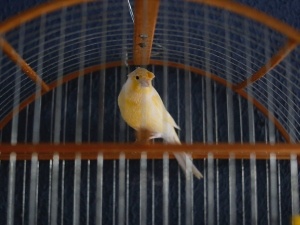
Birds are generally very good parents, these animals incubate their eggs, feed their chicks, build nests for their chicks, show their chicks how to sing, and even show their chicks how to fly.
Bizarrely, some birds will pluck their babies’ feathers. So why do they do this? This article looks into it
Why do birds pluck their babies’ feathers?
Calcium deficiency:
Bird’s can be difficult to feed, if they aren’t given the correct amount of vitamins and minerals they will develop a nutritional deficiency.
If birds are not fed correctly, if they aren’t fed enough calcium in particular, then the birds will pluck other birds, a parent may even pluck its own baby bird.
Birds will pluck their babies’ feathers and then chew on the ends of the feathers to get calcium for themselves
What to do:
You need to separate the adult birds from the baby birds, after this, give the adult birds calcium and mineral blocks to correct their calcium deficiency.
Calcium and mineral blocks are easily found at pet supply shops, feeding your birds this will keep the birds from plucking their babies’ feathers
Sodium deficiency:
Another mineral that your birds may be lacking, that causes them to pluck their baby’s feathers, is sodium.
One way for birds to get sodium is to pluck the pin feathers off of their baby birds, these types of feathers are very high in sodium.
What to do:
You need to quickly separate the baby birds from the adult birds and offer the adult birds a source of sodium so they can get their sodium needs met.
One way to get sodium into the parent bird’s body is to offer them a salt wheel or celery. Salt wheels are usually given to rodents and hamsters but they can be given to birds as well.
Over-grooming:
Parent birds groom their babies as a way of maintaining their feathers. Unfortunately, some parents will over-groom and pluck too many of their babies’ feathers.
This practice may be common, but it isn’t healthy for baby birds.
What to do:
If overgrooming is the reason why your parent bird is pecking at its baby then you’d need to pull the baby birds and hand-feed them keeping them away from their parents.
The baby bird’s feathers need time to regrow after being plucked, you need to make sure that the temperature of the environment is controlled while the baby’s feathers grow back in.
If you want to return the baby back to its parents then you need to make sure that the parents have something else to obsess over while the baby is there.
Giving the parent birds toys may help to keep them occupied, allowing them to forage for food may also help
Jealousy:
Getting attention from humans is very important to birds, they will try to get attention from you even if it means harming their own offspring to do so.
If the parent bird is used to getting all the attention, and its baby is suddenly getting all the attention, then the parent may become jealous and pluck the baby.
What to do:
You need to give both the parent bird and the baby bird attention, this will satisfy both birds.
Do this by tending to the adult bird then checking on and attending to the baby.
If the plucking bird is a cockatiel then you should definitely remove it when it starts to pluck its baby. Cockatiels never stop plucking, if you leave the parent to pluck the baby then the baby bird may end up featherless.
Parasites:
Parent birds will try to protect their babies as best they can, if the mother or the father bird realizes that the baby has parasites then the adults will pick, pull, and dig the parasites out of the baby’s skin.
If the parents are left to their own devices they will end up plucking a lot of feathers off of the baby. The bird parents will also pull out the baby birds’ pinfeathers, they do this to remove the parasite’s source of food
What to do:
You need to separate the baby bird from the adult birds and address the baby’s parasite problem.
You can treat the parasites by applying garlic onto your baby bird, applying tea tree oil diluted in a carrier oil on the baby, giving the bird a baking soda bath, or giving the bird synthetic medication to get rid of the parasites.
Change in schedule:
If you pull baby birds out too late, and the parent birds aren’t used to the baby birds being pulled this late, then this can be a problem.
If the babies are still around the parents when the parents expect them to be pulled then the parents will become abusive and start plucking the babies’ feathers
What to do:
Pull the baby birds out as soon as you realize that the parent birds are starting to pluck the baby’s feathers. When buying breeding birds in future, check with the previous breeders to see when they usually pull the baby birds.
Also helpful:
If you want your parent birds to stop plucking the baby then apply a thick layer of something oily or greasy, like Vaseline, onto the baby’s feathers.
When the parents come to pluck, they will be repulsed by the vaseline on the baby’s feathers and will not want to pluck
If you enjoyed this article then you may also be interested in other bird related articles. Here are some articles that you may be interested in: Bird Plucking Feathers Under Wings, Budgie Plucking Feathers Under Wings, What Happens When A Bird Loses Its Tail Feathers, Bird Losing Feathers Under Wings


